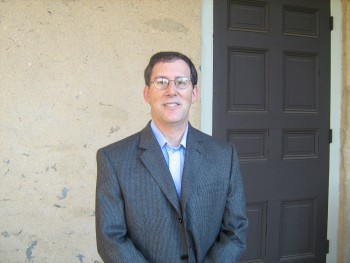Professor of Music Richard Freedman Receives "Digital Humanities" Grant from NEH

Richard Freedman
Details
Thanks to Professor of Music Richard Freedman, musicians and music scholars will soon have a contemporary way to explore the music of the past.
Freedman has received a“Digital Humanities” grant from the National Endowment for the Humanities (NEH) for a project entitled“The Chansonniers of Nicholas Du Chemin (1549-1551): A Digital Forum for Renaissance Music Books.” The professor, in collaboration with the Centre d'Etudes Superieures de la Renaissance (CESR), is creating a website that will allow users to research, view, and play the chanson albums printed by Du Chemin in their original format. Freedman is one of the only professors from a liberal arts college to receive such a grant from the NEH.
A longtime student of the music of Renaissance France and Italy, Freedman says that this website is not only a reflection of his own scholarship, but also a method of facilitating dialogue with a different century.“When you listen to or sing the music of the past, you're hearing the same sounds that were heard in the 16th century, but your expectations are different,” he says.“You need to understand the contexts in which the music of the past was made: Who made it? How was it distributed? What did people want music to do?”
Music as a printed medium in the days of Du Chemin was also a novelty, akin to present-day advances in digital media. While today music is printed in scores, in the 16th century songs were printed in separate“partbooks”: superius (soprano) and tenor voice parts facing each other in one book, and contratenor and bassus (bass) parts in the second book.“It was like an assembly kit,” explains Freedman.“[Singing] music was a collective experience—everyone had his or her own part.”
Freedman's site will present an innovative electronic interface for displaying the chansons in their original“partbook” format.“You'll be able to find compositions, read the parts on screen, and also toggle to different parts quickly,” says Freedman.“You can go forward and backward in the book and print everything out as a set. We'll respect the integrity of the compositions and the books that contain them.”
Visitors to the digital forum will be also able to search a database and image archive of the works; read commentaries (many authored by Freedman) and modern transcriptions; and find other electronic resources for early music and the history of printing. Users will also be able to listen to the chansons by downloading them for use with a free Sibelius Scorch Player.
The forum will be highly collaborative. Users will be able to participate in scholarly discussions, post notices about recordings, performances, and courses, organize virtual symposia, and even take a stab at composing: In some transcriptions, certain voice parts are missing, so Freedman and his colleagues will invite others to recompose those parts.
November 2009 is the projected time frame for the forum's launch. In the meantime, Freedman and his collaborators will test the site at a series of retreats in France and at Haverford.“We want this forum to be a pilot for [sites about] other repertoires,” says Freedman.“It holds much promise as a collaborative space for scholars, performers, and students interested in the music of the distant past. I am privileged to have the support of the NEH for this work.”
-Brenna McBride
Any views, findings, conclusions or recommendations expressed in this website do not necessarily represent those of the National Endowment for the Humanities.



